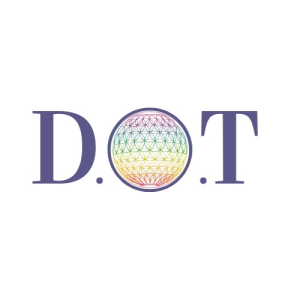Development Over Time Admin
Blog entry by Development Over Time Admin

Author: Clarissa Terracciano
Date: September 30, 2024
Category: Education Technology, Blockchain, AI in Education
Embracing AI for 21st-Century Learning
The role of Artificial Intelligence (AI) in education has sparked widespread debate. While some educators see its potential to enhance learning, others harbor concerns about its impact on teaching and the security of student data. These concerns are valid, yet as we look to the future, it’s clear that AI will play an integral role in driving 21st-century learning. In addition, implementing blockchain technology offers a crucial solution to the data security concerns that come with AI use in education. This blog explores teachers’ concerns, the path forward in embracing AI for modern learning, and how blockchain can address the privacy and security challenges associated with AI.
Understanding Teachers’ Concerns About AI in Education
Teachers play a pivotal role in shaping how technology is integrated into classrooms, and their concerns about AI cannot be ignored. Many educators worry that AI might diminish their role, making education more automated and impersonal. As Álvarez-Herrero (2024) points out, “AI is seen as a threat that can replace the role of the teacher in the classroom. It is thought that digital technology can perform teaching tasks more effectively than a teacher can do” (p. 165). This fear is understandable, especially as AI systems like ChatGPT and other learning algorithms gain popularity in automating tasks like grading and lesson planning.
Another significant concern revolves around the impact of AI on students' critical thinking skills. Teachers worry that students may rely too heavily on AI to complete assignments, potentially hindering their ability to solve problems independently and think critically (Dorgbefu, 2023). Moreover, the introduction of AI into classrooms raises ethical questions about data privacy, as AI systems collect vast amounts of student data, raising concerns about breaches and misuse.
Moving Toward AI-Driven 21st-Century Learning
Despite these concerns, it is essential to recognize that AI has the potential to transform education by personalizing learning, offering instant feedback, and providing teachers with insights into student progress that traditional methods cannot. AI can assist in differentiating instruction, ensuring that each student receives the support they need based on real-time data and analysis. This level of personalized learning can help address diverse learning needs, from students who require more challenging material to those who need additional support (Zawacki-Richter et al., 2019).
Incorporating AI into the classroom is not about replacing teachers but augmenting their capabilities. When used effectively, AI can handle administrative tasks, allowing teachers to focus more on instruction, mentorship, and fostering critical thinking. Teachers need to be well-equipped to use AI tools confidently and ethically. As Chounta et al. (2022) emphasize, “Teachers need to be well-versed in AI literacy to confidently integrate these tools into their pedagogy” (p. 199). Training and professional development are key to ensuring that AI supports rather than diminishes the teacher's role.
AI literacy must become a foundational component of 21st-century education. As technology continues to shape the job market, students must develop the skills to work alongside AI. By incorporating AI into learning activities, teachers can prepare students to critically evaluate and use these tools responsibly, turning them into an asset rather than a crutch.
Addressing AI Data Security Concerns with Blockchain
While AI offers transformative potential for education, the issue of data security is a significant barrier to its full integration. AI systems collect and analyze vast amounts of personal data, making them vulnerable to breaches. Teachers are rightfully concerned about protecting sensitive student information, and educational institutions must prioritize securing this data.
Blockchain technology presents an innovative solution to these concerns. Blockchain’s decentralized and transparent system can provide secure, tamper-resistant records of student data, ensuring that sensitive information is protected from unauthorized access and manipulation (Zhang, 2023). Once data is recorded on a blockchain, it cannot be altered without the consensus of the entire network, making it highly resistant to hacking and fraud. This level of security is crucial as AI systems continue to grow in complexity and scope.
Implementing blockchain alongside AI in education not only enhances data security but also fosters trust in the technology. Teachers, students, and parents can feel more confident that personal data is being handled with the utmost care and integrity. As Zhang (2023) points out, “Blockchain's potential in education is becoming increasingly prominent, and with AI’s support, it can create more efficient and trustworthy systems for both teachers and learners” (p. 30). Together, AI and blockchain can create a more secure, efficient, and transparent education system.
Conclusion: Embracing AI and Blockchain for the Future of Education
As we move deeper into the digital age, AI will play a pivotal role in driving 21st-century learning. While teachers' concerns about AI are valid, the potential benefits—when used responsibly—are undeniable. By embracing AI as a tool for enhancing personalized learning and supporting teachers, schools can prepare students for a future where AI literacy is essential.
To address concerns about data privacy and security, blockchain technology offers a powerful solution. By integrating blockchain with AI, educational institutions can ensure the safe, transparent, and efficient handling of student data, fostering greater trust in the use of technology in education.
Teachers and schools must work together to embrace AI as a tool for enhancing learning and leverage blockchain to secure the educational environment. In doing so, they will not only address the challenges of today but also build the foundation for a more resilient, innovative, and secure educational future.
Call to Action
The integration of AI and blockchain in education is no longer a distant possibility—it’s a necessity for preparing students to thrive in the 21st century. As educators, policymakers, and leaders, it’s crucial to move beyond concerns and begin leveraging these tools to enhance learning outcomes and protect the integrity of student data.
If you’re a teacher, start by exploring professional development opportunities that help you understand and use AI tools in your classroom. Advocate for blockchain implementation in your school or district to ensure that student data remains secure. Policymakers and educational leaders should work together to create frameworks that facilitate the ethical and efficient use of AI and blockchain technologies in education.
By embracing these innovations today, we can create a more personalized, secure, and equitable education system for tomorrow. Let’s build the future of education together—one where AI enhances learning and blockchain ensures trust and transparency.
Take the next step: Join discussions on how to effectively integrate AI and blockchain into your classroom, advocate for AI literacy in your curriculum, and start conversations with your institution about implementing blockchain for data security. The future of education is in our hands—let's shape it responsibly and innovatively.
Tags: AI in Education, Blockchain in Education, Artificial Intelligence, Educational Technology, Data Security in Schools, 21st Century Learning, Teacher Perceptions of AI, Blockchain for Data Privacy, AI Literacy, Personalized Learning, Ethical Use of AI, Digital Transformation in Education, Educational Innovation, Future of Education, EdTech
About the author:
Clarissa Terracciano is an experienced educator, educational consultant, and researcher specializing in blockchain technology and its transformative impact on education. Clarissa holds a BA in Psychology from CUNY Hunter College, an MA in Inclusive and Special Education from Teachers College, Columbia University, and is currently completing her PhD in Educational Leadership and Policy Studies at the University of Denver. She is committed to advancing equitable access to education through technology-driven approaches.
References
Álvarez-Herrero, J.-F. (2024). Opinion of Spanish teachers about artificial intelligence and its use in education. In S. Papadakis (Ed.), IoT, AI, and ICT for educational applications (pp. 163–167). Springer Nature. https://doi.org/10.1007/978-3-031-50139-5_8
Chounta, I., Skarpidis, M., & Papadakis, S. (2022). Training teachers for AI integration: Practical and ethical considerations. Advances in Education Technology, 12(3), 199–218.
Dorgbefu, E. (2023). Assessing the cognitive impact of AI in education: A case study of ChatGPT. Educational AI Review, 11(1), 1–18.
Zawacki-Richter, O., Marín, V. I., Bond, M., & Gouverneur, F. (2019). Systematic review of research on artificial intelligence applications in higher education–where are the educators? International Journal of Educational Technology in Higher Education, 16(1), 1-27.
Zhang, D. (2023). Value reconstruction and path innovation of blockchain technology for the development of higher education. Lecture Notes of the Institute for Computer Sciences, Social Informatics and Telecommunications Engineering, 466, 21–30. https://doi.org/10.1007/978-3-031-23947-2_1
